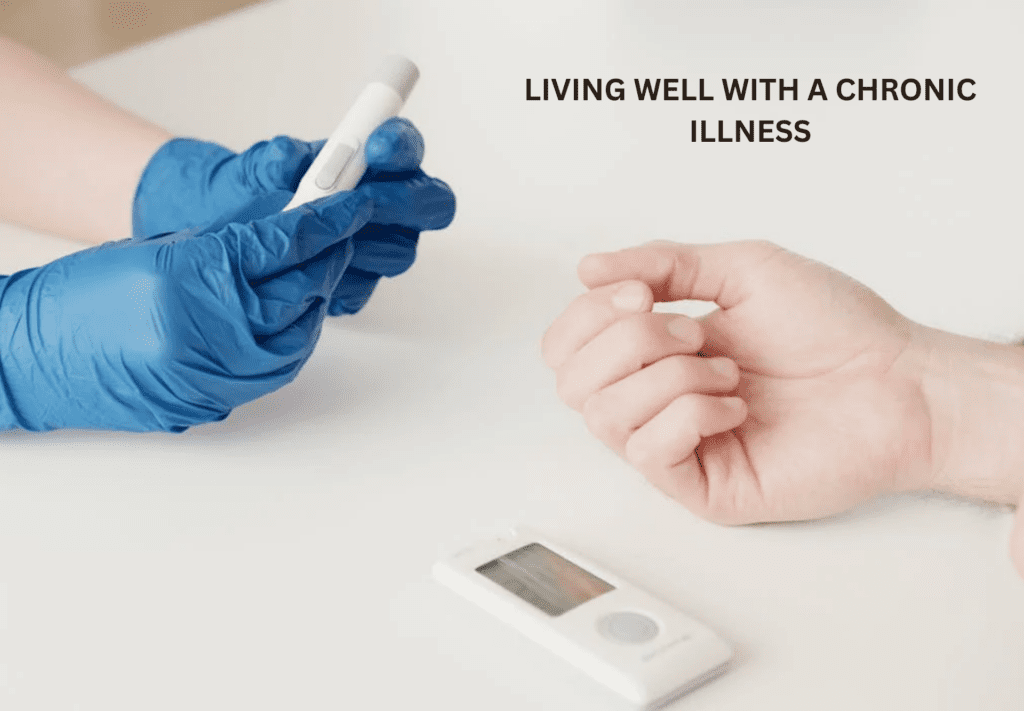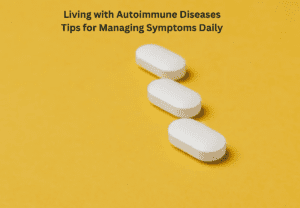Autoimmune disease is the condition of an immune system gone wrong. In theory, a human immune system protects him from harmful invaders. Still, it may sometimes malfunction and attack the body’s healthy cells. This would then cause chaos in varied conditions, affecting other body parts. Below are ten of the most common autoimmune diseases and how they affect the body.
1. Rheumatoid Arthritis
How it affects the body: RA involves effects on joints and causes inflammation, pain, stiffness, and swelling. It ends with deformation and the erosion of bones. Aside from this, RA can also affect the heart, lungs, and blood vessels.
Impact on living: RA generally makes daily activities difficult, especially those requiring delicate movements.
2. Type 1 Diabetes
How it works in the body: It kills off cells in the pancreas that make insulin, so blood sugars are very high. If not appropriately controlled with insulin, type 1 diabetes destroys the heart, kidneys, eyes, and nerves.
How it affects daily life: People with Type 1 diabetes must check their blood sugars and control their insulin, a lifetime commitment.
3. Systemic Lupus Erythematosus
What it Does: Lupus can attack virtually any organ or tissue in your body, including joints, kidneys, and heart. Most frequently, the inflammation brought on by lupus aches your joints, causes rashes, and damages other organs.
What It Does To Your Life: Lupus attacks are unstable, testing your patience from body to mind.
4. Psoriasis
How it affects the body: It is a condition in which an abnormal amount of skin cells is produced due to autoimmunity. Red, scaly patches appear mainly on the scalp, knees, and elbows.
How it impacted daily life: Sometimes, it would create hassle or embarrassment in public places when trying to move around while experiencing some itching and slight changes in the skin.
5. Hashimoto’s Thyroiditis
How it affects the body: The immune system begins attacking the thyroid gland. Unless destroyed, it causes hypothyroidism-a loss of thyroid activity, most of the gland is destroyed. Fatigue, weight gain, and intolerance to colds are symptoms.
Effects on daily life: Hormonal imbalances can lead to psychological and physical issues if not treated properly.
6. Graves’ Disease
How it affects the body: Hyper-stimulation of the thyroid gland through the immune system, hyperthyroid-overactive thyroid, which typically accompanies loss of weight, easily irritated condition, racing pulse, protruding eyes.
How it affects daily routine: If not treated medically, the symptoms of anxiety condition and heart problems may hamper one’s daily routine.
7. Alopecia Areata
How it affects the body: This triggers an autoimmune response, attacking hair follicles. The patients begin shedding all the hair from their scalp and gradually from all parts of their bodies.
It can also affect ordinary life: Pain-free, the only bruise to a patient’s ego is hair loss.

Living with Autoimmune Diseases
Autoimmune diseases can be tricky and sometimes require a bit of a multilateral approach towards treatment:
- Medicament: Patients can be treated by immunosuppressive or biologic therapy.
- Lifestyle Changes: Healthy diet, regular exercise, and stress management.
- Support Groups: A support group or counseling would work in the end, both emotionally and practically.
New Findings About Autoimmune Disease
Autoimmune diseases have arrested the attention of doctors in recent days. Some of the new findings are as follows
- Headliner treatments: Biologic drug inhibitors for rheumatoid arthritis or IL-17 inhibitors for psoriasis have changed the landscape of how one approaches treatment. Drugs targeting very well-articulated immune system components decrease inflammation and improve outcomes.
- Personalized medicine: Thanks to the advances developed over the last few decades, genetic testing and biomarkers have enabled physicians to offer the best treatment options for this patient’s immune system, making him more robust and less harmful.
- Gut Health correlation: Autoimmunity was correlated with gut microbiota. Such interdisciplinary therapeutics include probiotics and dietary manipulations to modulate the immune apparatus.
- Lifestyle-Based Therapies: Integrative medicine combines conventional treatments with alternative therapies like yoga, acupuncture, and stress-coping skills to enhance symptom management for autoimmune diseases.
- A Related Connection with Autoimmune Diseases, Possibly:. This new treatment, stem-cell transplant to CRISPR gene editing, may reboot or speed up the immune system.
LIVING WELL WITH A CHRONIC ILLNESS
The drugs are only one type of treatment for the patient with autoimmune disease and much more than that is needed to ensure good self-care and quality of life. Some of these other interventions that can be used by patients with chronic conditions, including the case with an autoimmune disease, are listed below.
- Continue Learning. You’ll learn about your disease in terms of what you feel, what provokes your condition, and what you can do about it. And that is the knowledge that will instruct your intelligent decisions.
- Follow Your Treatment Plan: Adherence to prescribed treatments may abort or postpone long-term damage.
- Symptom Record: Keep a symptom diary or journal of which diet and lifestyle changes. This allows you to observe patterns and will guide changes in treatment plans.
- Physician Education: Educate health care professionals to care for themselves and keep abreast of medications properly.
- Self-Improvement: One needs time to relax, rehydrate, and sleep because worrying exacerbates the autoimmune flare.
Support Groups: After some disappointments and joining support groups, forums, and other similar groups, I found some excellent advice on how to live with my autoimmunity disorder.
Nutrition in Autoimmunity
The role of Nutrition has been considered crucial in handling autoimmune disorders. One diet is only ideal for some, as some food products with nutrition can decrease inflammation levels and promote health.
1. Anti-Inflammatory Diet
- Include Fresh fruits, vegetables, whole grains, fatty fish loaded with omega-3s, nuts, seeds, and olive oil.
- How It Is Helpful: Foodstuffs reduce inflammation perhaps the most common presenting symptom of an exacerbation.
2. Diet Reversal
- Utilized in Diagnosis and ruling out individual food intolerance that triggers an exacerbation.
- Etiologies involved: Specific triggers of exacerbations are usually linked to gluten, dairy, soy, or processed sugars due to autoimmune diseases, such as celiac disease and rheumatoid arthritis. 3. Gut-Immune Interface
- Probiotics: Yogurt, kimchi, sauerkraut, or kefir can be a probiotic
- Prebiotics: bananas, onions, or garlic may favour good gut bacteria
- Why It Matters: A healthy gut microbiome could boost the immune system. Besides, it may even reduce the severity of the autoimmune activity. 4. Hydration and Supplements
Hydrate more to detox, and supplements like vitamin D, omega-3 fatty acids, and curcumin (turmeric) can keep the symptoms in control, but only under consultation with the doctor take such a regime on
Exercise and Physical Activity
A study has already established that exercise benefits patients suffering from autoimmune diseases.
This also diminishes inflammation: Light to moderate exercises can be another aid for the patient to reduce systemic inflammation; for instance, swimming, cycling, or walking
- Ability to strengthen mobility: Stretches and yoga stretch the joints for excellent flexibility, especially in conditions like rheumatoid arthritis or lupus.
- Mood Improvement: Many believe it releases endorphins, working out, which means it potentially prevents many conditions characterized by stress, anxiety, and depression that would otherwise tend to dominate the lives of suffering patients who are still fighting autoimmune diseases.
Patient Exercise Plan
Other autoimmunities cannot stretch themselves to that form of exercise. The ways to adapt to some extent are a little as below :
- Arthralgia Exercise Low-impact like swimming or tai chi. This reduces the stress
- On relapses: Rest maximally but not a couch potato altogether to keep limber
- On flares-up free: Light exercises, like yoga or short walks. This keeps one energetic and not over-stretched
Conclusion
Millions of people are suffering from these diseases. Yet, however complicated it may appear, each can bring a different case to the terrain. Like these illnesses, proper medical science support, holistic approaches towards health and care, and practical support systems will enable a life of balance and fulfillment.
FAQs
1. What causes autoimmune diseases?
The cause is unknown; however, a combination of genetic, environmental, and hormonal factors is suspected to contribute toward the triggering of the problem. These diseases are also alleged to be prompted by some infections, stress, or chemicals that prompt the immune system.
2. Do the autoimmune diseases show an inheritance pattern?
They are not hereditary, but the risk is higher in those with an autoimmune disease family history. Some patients have an associated predisposing genetic marker for it, often the HLA group of genes.
3. Are autoimmune diseases curable?
So far, no cure has been found for autoimmune diseases. Treatment is essentially symptomatic, removing inflammatory-causing agents and preventing complications.
4. Are autoimmune diseases infectious?
No. Autoimmune diseases are caused by malfunctioning inner immune systems, not caused by infections.
5. Is diet a cause of autoimmune disease?
Yes, diet may do that, at least concerning symptoms. Anti-inflammatory foods, appropriate avoidance of known triggers such as gluten or dairy, and even general dietary balance will likely improve well-being and prevent flares from occurring.




